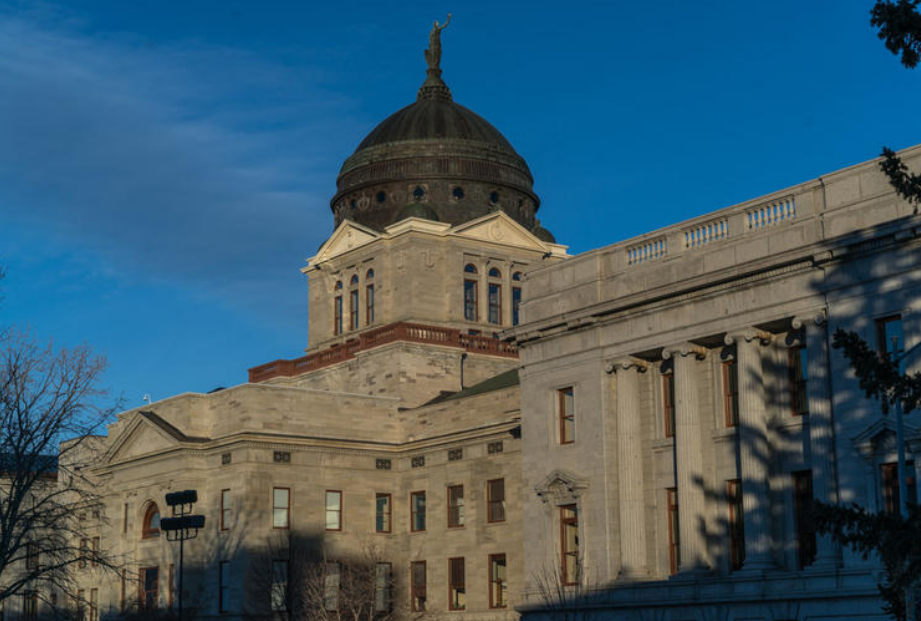
- Details
- By Native News Online Staff
BILLINGS, Mont. — With less than 40 days before the 2020 general election, a Montana court on Friday, Sept. 25 permanently struck down a state law that was viewed by many as a form of voter suppression of American Indians living on rural reservations.
The ruling is viewed as a major victory for Montana tribal citizens.
District Judge Jessica Fehr of the Montana Thirteenth Judicial District Court ruled that Ballot Interference Prevention Act (BIPA) is unconstitutional.
Under BIPA, which was passed in 2018, there were restrictions on who could collect ballots and even how many ballots could be collected. Get-out-the-vote organizers would previously collect 85 ballots each on average, but were restricted to just six ballots per collector.
Under BIPA, bringing ballots to the post office for relatives or neighbors could result in a $500 fine per ballot.
In March 2020, the Native American Relief Fund (NARF), American Civil Liberties Union (ACLU), and ACLU of Montana filedWestern Native Voice v. Stapleton to challenge BIPA.
The lawsuit was filed on behalf of Western Native Voice and Montana Native Vote, both Native American-led organizations focused on increasing voting, as well as the Assiniboine & Sioux Tribes of Fort Peck, Blackfeet Nation, Confederated Salish and Kootenai Tribes of the Flathead Reservation, Crow Tribe, and Fort Belknap Indian Community.
BIPA exacerbated the barriers many rural Native Americans face in voting, which include difficulties in traveling to post offices and polling places, and is unconstitutional, District Judge Jessica Fehr ruled.
In the introduction of the order the court wrote, “the questions presented cannot be viewed through the lens of our own upbringings or own life experiences, but through the lens of the cold, hard data that was presented at trial about the clear limitations Native American communities in Montana face, and how the costs associated with … (BIPA) are simply too high and too burdensome to remain the law of the State of Montana.”
“Today the Court held that BIPA is unconstitutional and is permanently enjoined. This means that this election, Indian people in Montana can get the help they so sorely need to have their ballots counted,” NARF staff attorney Natalie Landreth said after the ruling.
In a state where the majority of individuals vote by mail, rural tribal communities often work with get-out-the-vote organizers who collect and transport ballots to election offices that would otherwise be inaccessible because of distance, lack of access to transportation or other socio-economic barriers.
These ballot collection efforts are often the only way Native Americans living on rural reservations can access the vote. BIPA would have effectively ended this practice, disenfranchising Native American voters en masse, according to experts.
“This ruling means that Indigenous voters living on rural reservations are better able to participate in our democracy. Ensuring that all voters have access to the polls is a foundational component to our democracy, and we are pleased that our organizers can continue their get-out-the-vote and ballot collection efforts on every reservation in Montana. The excellent result in this lawsuit shows what can happen when organizations, individuals, organizers and tribal governments come together,” Western Native Voice Executive Director Marci McLean said.
More Stories Like This
Native News Weekly (August 25, 2024): D.C. BriefsNavajo Nation Mourns the Passing of Former Vice President Rex Lee Jim
Deb Haaland Earns Endorsement From Communications Workers of America Local 7076
University Soccer Standout Leads by Example
Two Native Americans Named to Democratic Congressional Campaign Committee's“Red to Blue” Program
Help us defend tribal sovereignty.
At Native News Online, our mission is rooted in telling the stories that strengthen sovereignty and uplift Indigenous voices — not just at year’s end, but every single day.
Because of your generosity last year, we were able to keep our reporters on the ground in tribal communities, at national gatherings and in the halls of Congress — covering the issues that matter most to Indian Country: sovereignty, culture, education, health and economic opportunity.
That support sustained us through a tough year in 2025. Now, as we look to the year ahead, we need your help right now to ensure warrior journalism remains strong — reporting that defends tribal sovereignty, amplifies Native truth, and holds power accountable.
 The stakes couldn't be higher. Your support keeps Native voices heard, Native stories told and Native sovereignty defended.
The stakes couldn't be higher. Your support keeps Native voices heard, Native stories told and Native sovereignty defended.
Stand with Warrior Journalism today.
Levi Rickert (Potawatomi), Editor & Publisher

